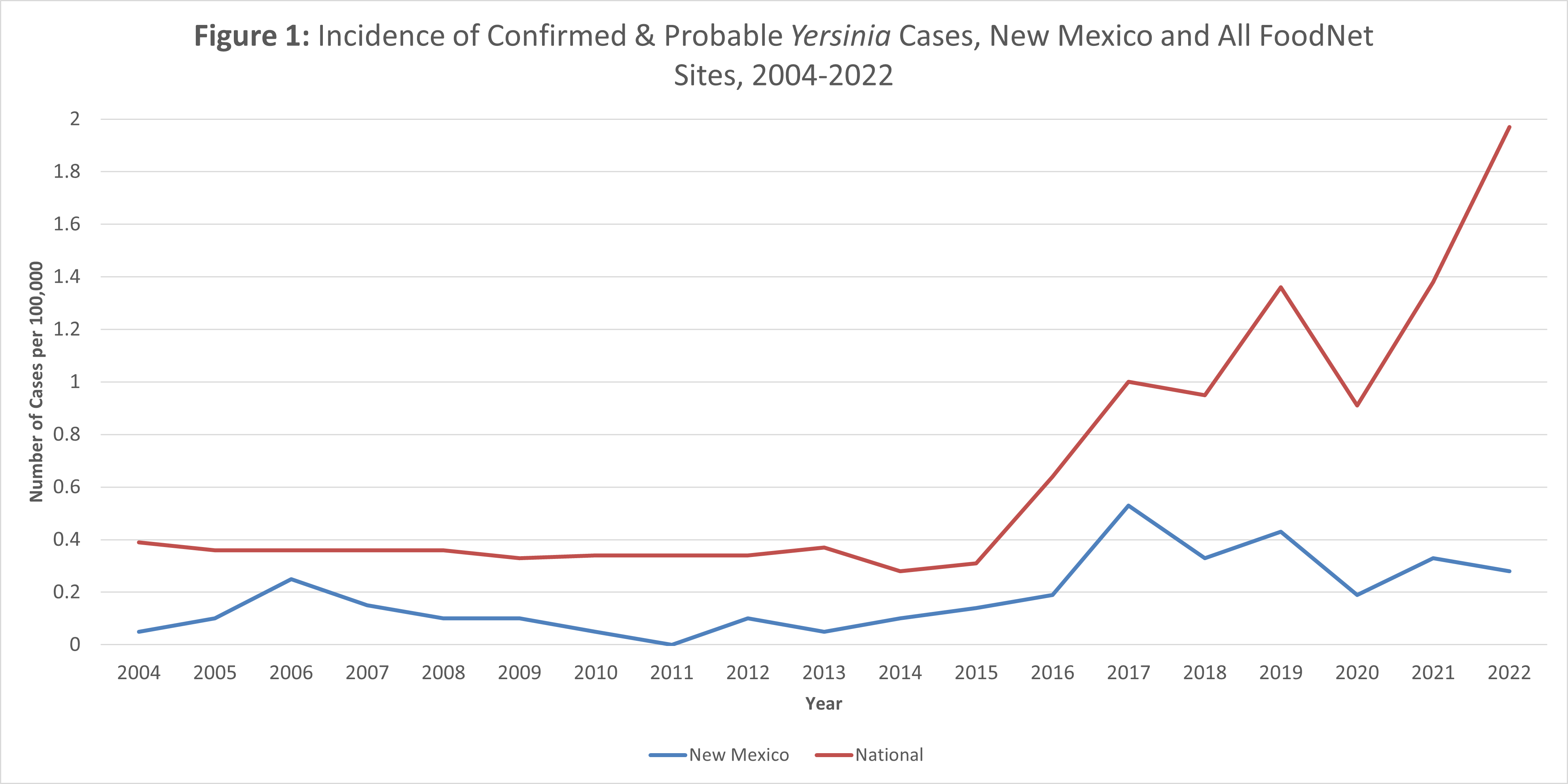Yersinia
Yersiniosis is an uncommon diarrheal disease caused by a group of bacteria called Yersinia. The bacterium that causes plague, Yersinia pestis, is also in this family. In the United States, yersiniosis is usually caused by a single species, Yersinia enterocolitica. Yersiniosis usually results from eating contaminated food, especially raw or undercooked pork products. Infection with Y. enterocolitica can cause a variety of signs and symptoms depending on the age of the person infected. Y. pseudotuberculosis has not been associated with any outbreak in the United States, but has been observed in other countries.
Strains of Y. enterocolitica are found in meats, oysters, fish, raw milk, water, soil, and occasionally animals such as pigs, rodents, rabbits, sheep, cattle, horses, dogs, and cats. In the US, infection is most often associated with consumptions of contaminated, undercooked pork products. The preparation of raw pork intestines (chitterlings) may be particularly risky.
Infections with Y. enterocolitica are more common in young children and are more frequent during winter months. Fever and abdominal pain are the hallmark sign and symptom, respectively; however, gastroenteritis with diarrhea and/or vomiting may also occur. The onset of signs and symptoms is typically four to seven days after exposure, and the duration ranges from one to three weeks. It is important to note that in older children and adults, right-sided abdominal pain may occur, which could be mistaken for appendicitis. Uncomplicated cases of yersiniosis often resolve on their own and may require no medical intervention. In circumstances where the infection persists, antibiotic therapy may be indicated.
To prevent yersiniosis, avoid consumption of undercooked pork and unpasteurized milk and milk products. Wash hands with soap and water before eating or preparing food. In order to prevent cross-contamination in the kitchen, use separate cutting boards for meat and other foods.
Yersinia Infection in New Mexico and the United States
Active, population-based surveillance for Yersinia has been conducted throughout New Mexico since 2004 as part of the New Mexico Emerging Infections Program (NMEIP) FoodNet system. Medical records for residents of New Mexico with yersiniosis are reviewed for demographic and other epidemiologic information. Through this surveillance system NMEIP is able to examine and describe Yersinia infections in the state. Data from New Mexico and other EIP FoodNet sites are aggregated by the Centers for Disease Control and Prevention to generate national estimates.
In 2022, there were 6 cases of yersiniosis identified in New Mexico, and 1003 cases reported from all 10 FoodNet sites.


